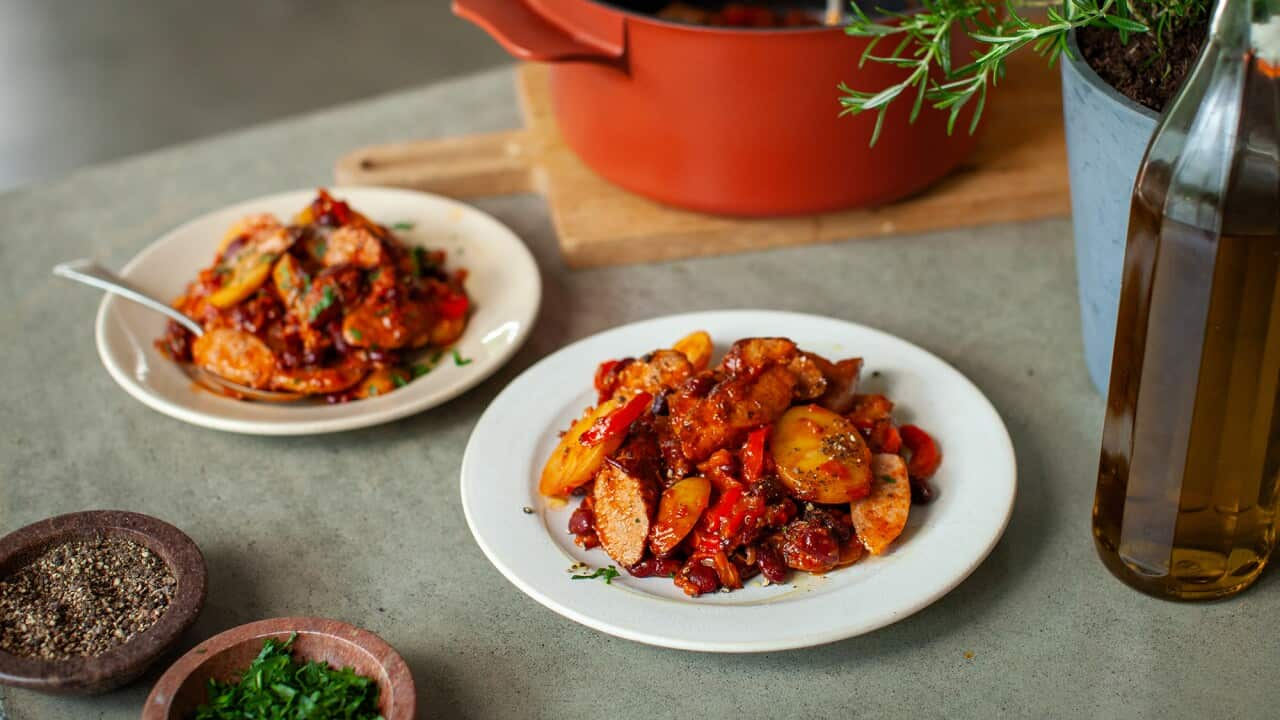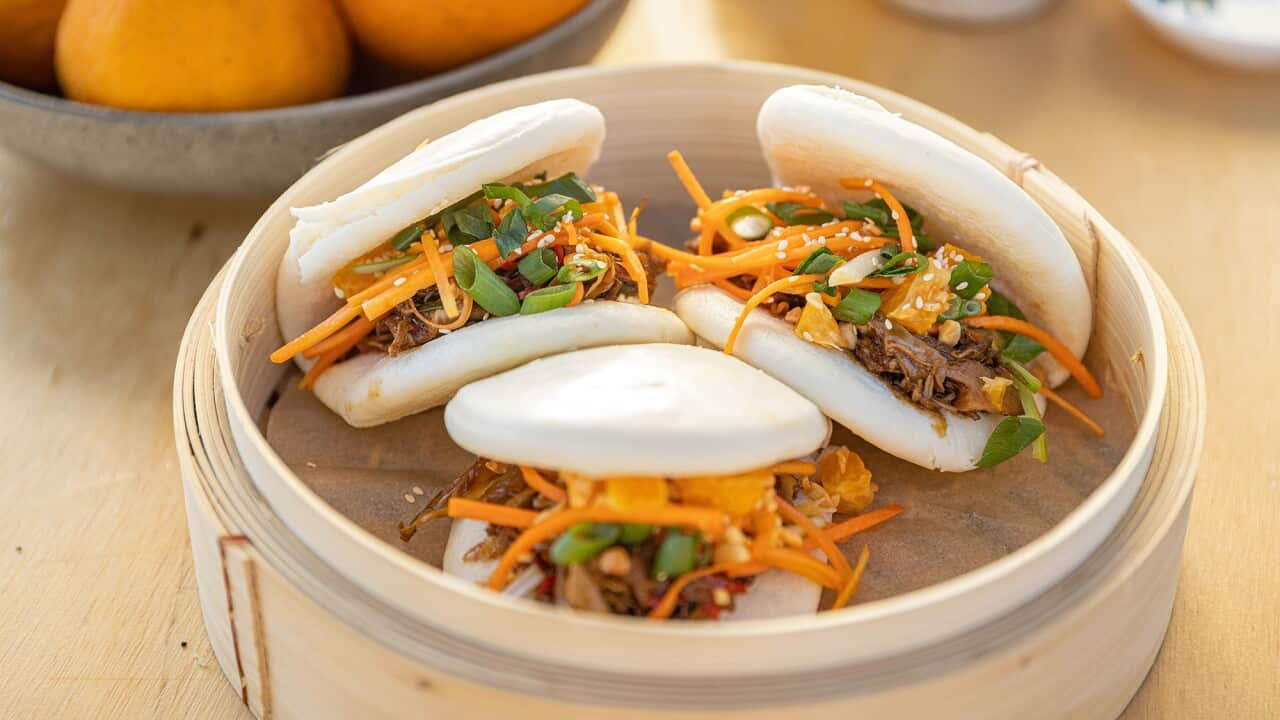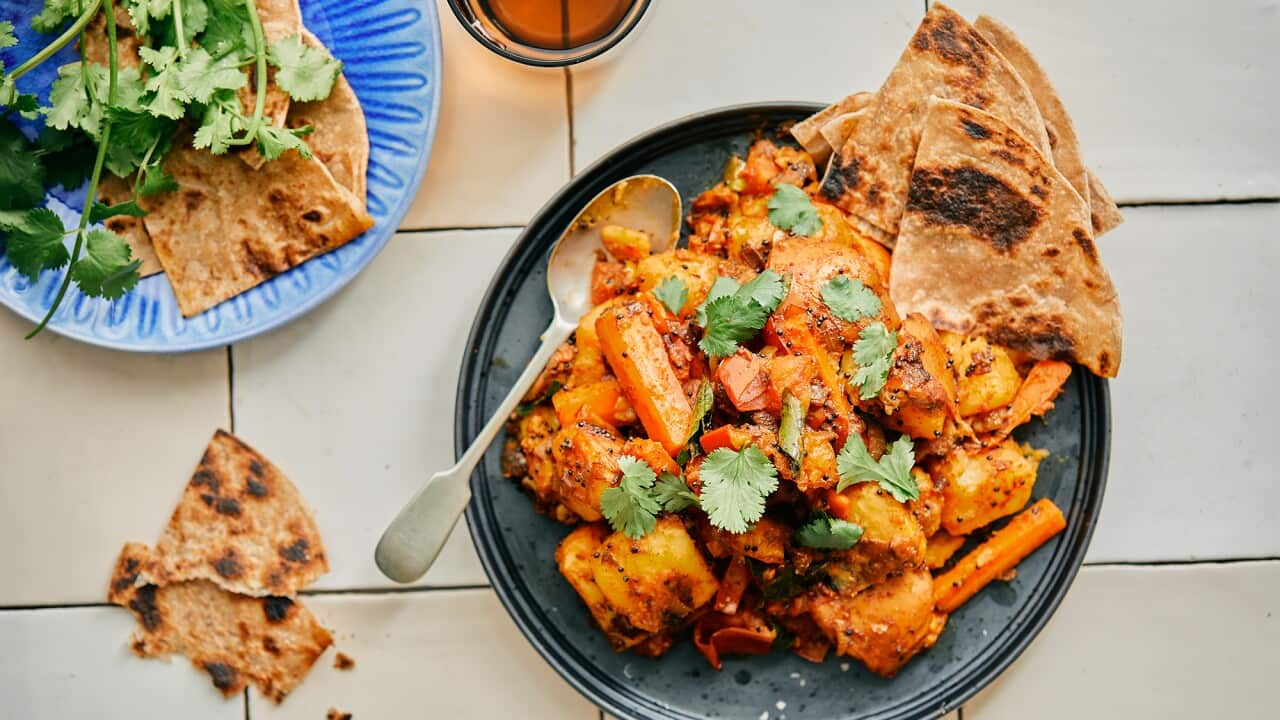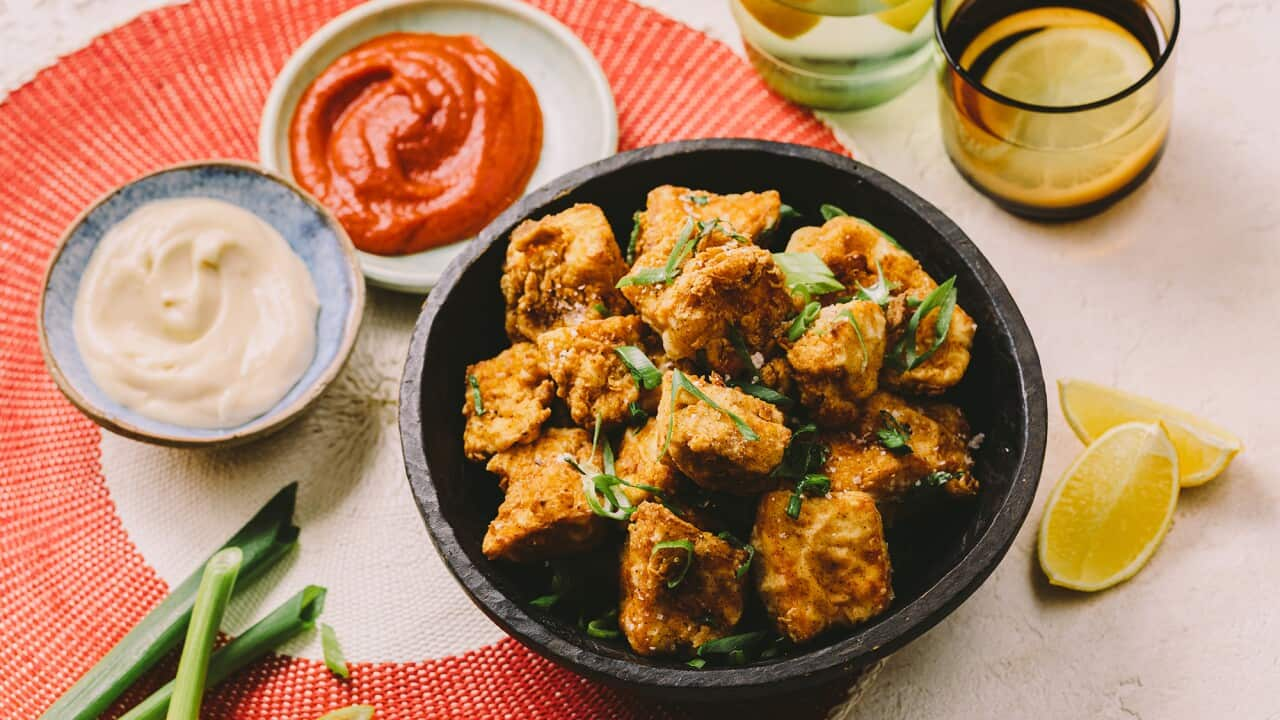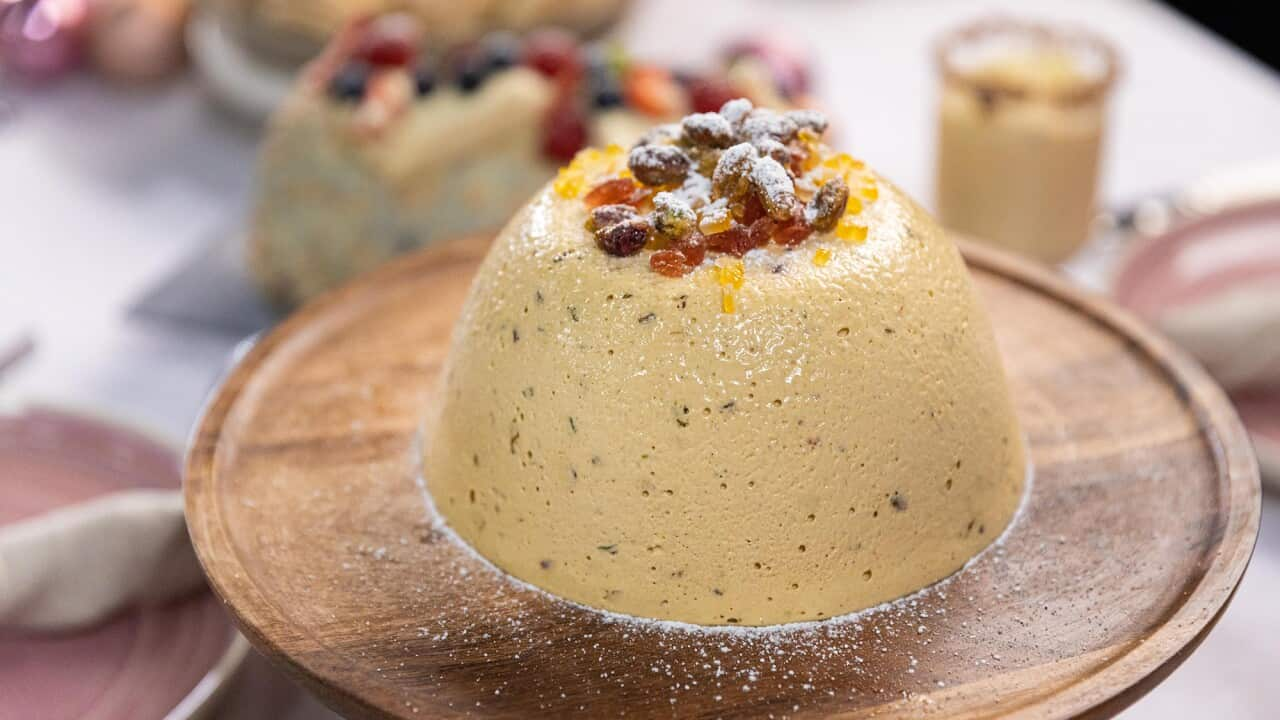serves
2
prep
20 minutes
cook
20 minutes
difficulty
Easy
serves
2
people
preparation
20
minutes
cooking
20
minutes
difficulty
Easy
level
Ingredients
- 2 calamari hoods with wings attached, skin removed
- 2 cloves garlic, minced
- 1½ tsp sumac
- 1 tbsp extra-virgin olive oil
- 2 tbsp lemon juice, plus wedges to serve
- salt and pepper
- 90 g cracked freekeh (see Note)
- 150 g frozen broad beans
- ½ preserved lemon (see Note), rind only, finely shredded
- ½ bunch radishes, sliced
- ⅓ cup parsley or mint leaves
- 2 tbsp pumpkin seeds (pepitas), lightly toasted
Instructions
Combine the calamari, garlic, sumac and 2 teaspoons each of the olive oil and lemon juice. Season to taste, toss until the calamari is well coated then set aside.
Bring 200ml water to the boil in a small saucepan. Add the freekeh and a pinch of salt. Reduce the heat to low, cover and cook for 13–15 minutes until the water has been absorbed and the freekeh is tender (drain any residual water).
Meanwhile, cook the broad beans in boiling water for 2 minutes. Drain, refresh in cold water and drain again. Slip broad beans from their pods and add to the freekeh with the preserved lemon, parsley and the remaining olive oil, lemon juice and sumac. Season lightly (preserved lemon has a strong salty flavour) and toss to combine.
Preheat a barbecue or chargrill pan to high. Chargrill radish for 1-2 minutes, then add to the broad bean mix. Cook calamari for 2–2½ minutes on each side until tender and lightly charred.
Divide freekeh between plates and scatter over the pumpkin seeds. Top with calamari and serve with lemon wedges.
Note
• Cracked freekeh is roasted young wheat grains available in the health-food section of supermarkets and from health-food stores.
• Preserved lemons are available in most supermarkets and international delicatessens. If unavailable, substitute the finely grated rind of 1 lemon.
Photography by Benito Martin. Styling by Lynsey Fryers.
Dinner plate and pebble bowl, both from Mud.
Cook's Notes
Oven temperatures are for conventional; if using fan-forced (convection), reduce the temperature by 20˚C. | We use Australian tablespoons and cups: 1 teaspoon equals 5 ml; 1 tablespoon equals 20 ml; 1 cup equals 250 ml. | All herbs are fresh (unless specified) and cups are lightly packed. | All vegetables are medium size and peeled, unless specified. | All eggs are 55-60 g, unless specified.


